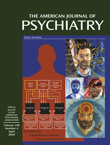Negative Symptom and Cognitive Deficit Treatment Response in Schizophrenia
This is a timely collection of review papers by some of the leading researchers in the field of negative symptoms and cognitive impairments, who summarize this literature as it applies to treatment trials. Although the papers were written independently, they reflect a sometimes controversial ongoing dialogue, which makes this book lively reading. Rather than simply reviewing available evidence on the treatment of negative symptoms and cognitive impairment, the chapter authors focus on core methodological and conceptual issues that have been addressed incompletely so far, not only providing the reader with a good grasp of current knowledge but also pointing correctly toward limitations in current evidence.
This book clearly emphasizes negative symptoms. Several points of consensus emerge regarding the need for additional studies specifically designed to address their treatment response, given the traditional emphasis on positive symptoms in therapeutic trials. Indeed, convincing arguments are made for the need for longer duration of trials, longer washout duration, and sampling specific populations with predominantly negative symptoms. This book also reflects the disagreements on how direct effects on negative symptoms should be differentiated from indirect improvements of negative symptoms mediated by reduction in psychoses, improvement in extrapyramidal symptoms, or other indirect mechanisms. Indeed, although Buchanan and Carpenter call for studies including patients with deficit/primary negative symptoms, others point toward difficulties in distinguishing primary and secondary negative symptoms and in recruiting a sufficient number of such patients. The latter argue for the use of statistical techniques to disentangle direct versus indirect effects. The authors on both sides, who are probably the best suited to defend these opinions, present their positions very thoroughly, which provides an interesting debate that calls for the readers’ critical sense.
Other very pertinent original contributions in this book include a chapter devoted to the perspective of the family, which is often overlooked. Another, coauthored by Limpert and Amador, provides a very insightful review of the literature on the subjective experience of negative symptoms. Hence, this book provides an in-depth overview of research on negative symptoms and its clinical implications. However, it would have been even more complete had it included a chapter providing clinical guidelines on the distinction between primary and secondary negative symptoms and had the literature on psychosocial treatment for negative symptoms been reviewed.
Concerning cognitive deficits, I would say that the title of the book is a little misleading, since this issue is provided much less emphasis than are negative symptoms. However, the chapter by Keefe on the assessment of neurocognitive treatment response is particularly interesting and provides, for example, a much-needed discussion on dosing issues, which tend to be somewhat overlooked when interpreting evidence on the impact of neuroleptics on cognition.
Overall, this book provides a thorough overview on the research regarding the treatment of negative symptoms (and, to a lesser extent, cognitive performance), making this complex literature much more understandable. The book should appeal to a broad readership, ranging from clinicians treating people suffering from schizophrenia to researchers in the field of negative symptoms and cognitive impairments.



